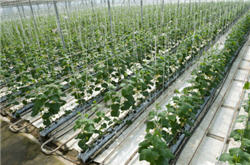Formally established just three years ago, aeroecology is the study of flying and floating organisms in the air they inhabit.
Less than 2 percent of the October-July periods since 1895 have been drier than they are currently for all of Texas and many parts of New Mexico. These areas experienced either their driest or second driest October-July periods in the last 117 years. Less than six percent of the October-July periods have been drier than current conditions in southeastern Arizona.
A national database on technologies to assess the conditions and rehabilitation of the underground pipes will be available to utilities and the general public, starting on Thursday, Sept. 1.
The same University of Washington researcher who used chemical sleuthing to deduce what’s in fragranced consumer products now has turned her attention to the scented air wafting from household laundry vents.
Imagine being able to get the equivalent of 70 miles per gallon in your car, keep your home cool and power your computer – all from sewage. Thanks to technology developed by University of California-Irvine’s National Fuel Cell Research Center and partners, that’s now possible.
Two years ago, Florida State University senior Sandy Simmons went to a college housing conference and got a big idea: recycled bike rentals for students — on the cheap.
Baylor University environmental researchers have proposed in a new study a different approach to predict the environmental safety of chemicals by using data from other similar chemicals.
The U.S. Environmental Protection Agency recently announced that the Great Lakes Restoration Initiative is setting aside approximately $6 million for federal agencies to sign up unemployed workers to implement restoration projects in federally-protected areas, on tribal lands and in Areas of Concern in the Great Lakes basin.
In building a fuel cell that uses bacteria to break down waste in water, Israel's water company Emefcy Ltd. has raised about $10 million from investors including GE, NRG Energy Inc. and ConocoPhillips.
Findings, published online this week in the journal Air Quality, Atmosphere and Health, show that air vented from machines using the top-selling scented liquid laundry detergent and scented dryer sheet contains hazardous chemicals, including two that are classified as carcinogens

Gotham Greens, a hydroponics greenhouse facility, sits on a warehouse rooftop and brings new meaning to the phrase "locally grown" – especially atop a 15,000-square-foot manufacturing building in Greenpoint, Brooklyn.
Billions of tons of carbon trapped in high-latitude permafrost may be released into the atmosphere by the end of this century as the Earth’s climate changes, further accelerating global warming, a new computer modeling study indicates
With the expectation that Hurricane Irene, which is currently gathering steam offshore, will hit at least some part of the East Coast, here are a few tips that can help consumers prepare for—and ride out—a storm.
A new University of Colorado - Boulder study indicates a major climate oscillation in the Southern Hemisphere, expected to intensify in the coming decades, will likely cause increased wildfire activity in the southern half of South America.
NEDAK Ethanol LLC, an alternative fuels manufacturer, has agreed to pay a civil penalty of $3,600 to the United States for failing to develop a risk management program and file a risk management plan for its ethanol production facility at Atkinson, Neb.
A new explanation for one of nature's most mysterious processes, the transformation of caterpillars into moths or butterflies, might best be described as breathless.
In rural areas of Africa, Asia, and Latin America, poor farmers supplement their livelihoods by hunting and cutting wood, but such practices can seriously threaten biodiversity in the developing world. Now, two Cornell University researchers are leading the way to explore solutions that not only protect biodiversity but also improve the livelihoods of the poor.
The U.S. Environmental Protection Agency (EPA) recently announced a new tool to allow 28 industrial sectors to submit their 2010 greenhouse gas (GHG) pollution data electronically.
Southern Colorado officials and community leaders celebrated the beginning of major construction on the historic Southern Delivery System (SDS), one of the largest water supply projects under way in the western United States.
Epps Shipping Company, a Liberian corporation doing business out of Carolina, Puerto Rico, was sentenced in federal court for violating the Act to Prevent Pollution from Ships (APPS) and making false statements to U.S. Coast Guard inspectors.